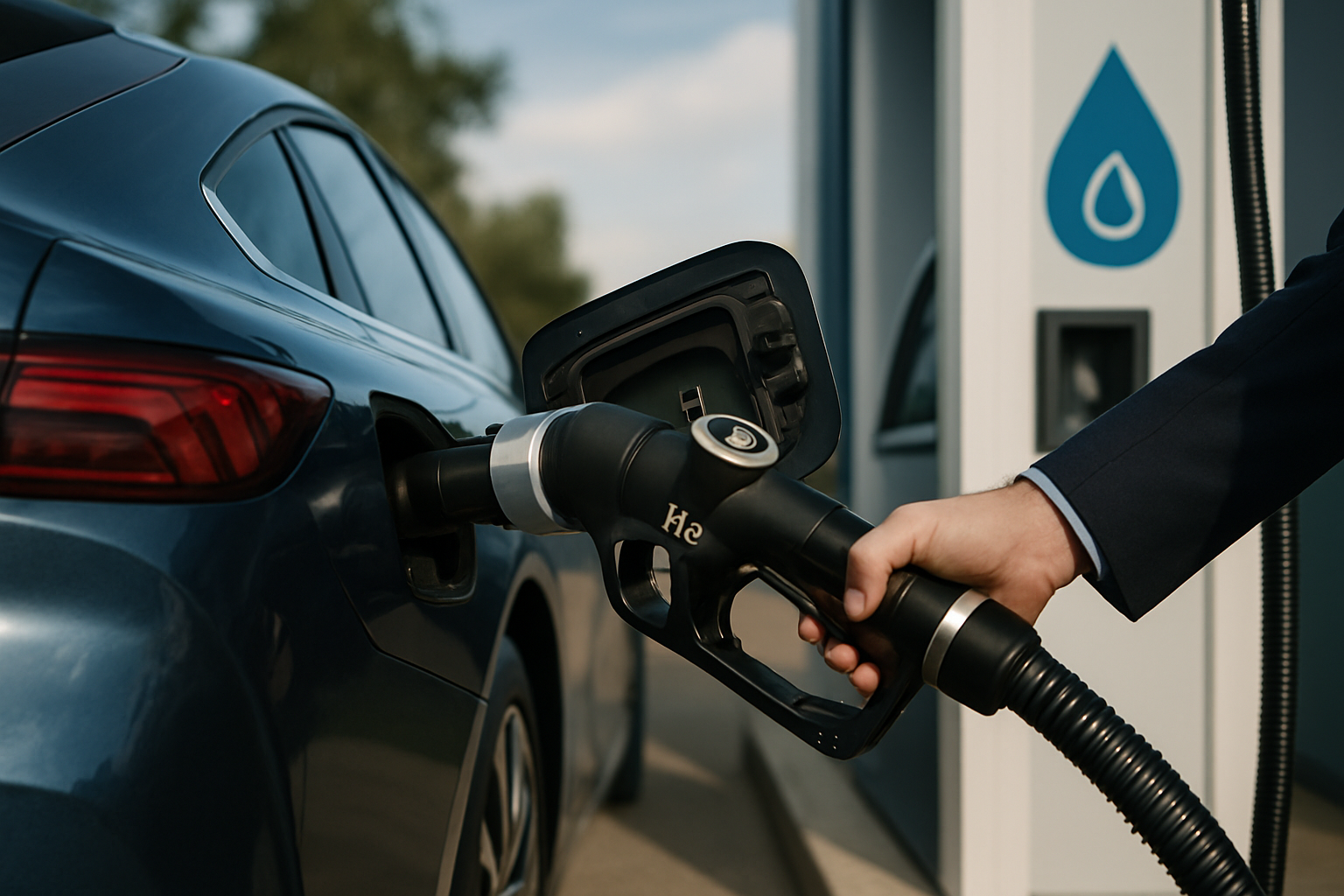Synthetic Fuels: The Next Frontier in Clean Automotive Energy
In the quest for sustainable transportation, synthetic fuels are emerging as a promising alternative to traditional fossil fuels. This cutting-edge technology offers a potential solution to reduce carbon emissions while utilizing existing internal combustion engine infrastructure. As the automotive industry grapples with environmental challenges, synthetic fuels present an intriguing path forward that merits closer examination. Let's dive into the world of synthetic fuels and explore their potential to reshape the future of automotive energy.

Historical Context and Technological Developments
The concept of synthetic fuels is not entirely new. During World War II, Germany developed synthetic fuel technology to address oil shortages. However, the process was energy-intensive and costly. Recent advancements in renewable energy and carbon capture technologies have revitalized interest in synthetic fuels as a viable option for reducing greenhouse gas emissions in the transportation sector.
The Production Process
The production of synthetic fuels begins with the generation of green hydrogen through electrolysis, powered by renewable energy sources such as wind or solar. This hydrogen is then combined with captured CO2 in a process called Fischer-Tropsch synthesis, resulting in a hydrocarbon fuel that mimics conventional gasoline or diesel. The entire process is designed to be carbon-neutral, as the CO2 released during combustion is equal to the amount captured during production.
Advantages of Synthetic Fuels
One of the most significant advantages of synthetic fuels is their compatibility with existing internal combustion engines. This means that current vehicles can potentially transition to a cleaner fuel source without the need for extensive retrofitting or replacement. Additionally, synthetic fuels can be distributed through existing fuel infrastructure, reducing the need for massive investments in new distribution systems.
Challenges and Limitations
Despite their potential, synthetic fuels face several hurdles. The production process is currently energy-intensive and expensive, making synthetic fuels less economically viable compared to traditional fossil fuels. Scaling up production to meet global demand also presents significant challenges. Moreover, the efficiency of the entire process, from energy capture to fuel use, is lower than direct electrification of vehicles.
Industry Trends and Developments
Several major automotive manufacturers and energy companies are investing in synthetic fuel research and development. Porsche, for instance, has partnered with Siemens Energy to build a pilot plant in Chile that will produce synthetic fuel using wind energy. Other companies like Audi and Bosch are also exploring synthetic fuel technologies as part of their sustainability strategies.
Regulatory Landscape
The regulatory environment surrounding synthetic fuels is still evolving. The European Union has shown interest in including synthetic fuels in its renewable energy directives, potentially opening up a significant market. However, the classification of synthetic fuels as carbon-neutral remains a topic of debate among policymakers and environmental groups.
Comparative Analysis: Synthetic Fuels vs. Other Alternative Fuels
When compared to other alternative fuels like biodiesel or ethanol, synthetic fuels offer several advantages. They can be engineered to have specific properties, potentially improving engine performance and reducing emissions. Unlike biofuels, synthetic fuels do not compete with food crops for agricultural land. However, they currently lag behind in terms of production scale and cost-effectiveness.
Impact on the Automotive Industry
The adoption of synthetic fuels could have far-reaching implications for the automotive industry. It could extend the lifespan of internal combustion engine technology, providing a transitional solution while electric vehicle infrastructure develops. This could also affect the pace of electric vehicle adoption and the overall strategy of automakers in addressing emission regulations.
Future Prospects and Research Directions
As research in synthetic fuels progresses, we can expect improvements in production efficiency and reductions in cost. Future developments may include more efficient catalysts for the Fischer-Tropsch process, advanced carbon capture technologies, and integration with other renewable energy systems. The potential for synthetic fuels to power aviation and shipping, sectors that are challenging to electrify, is also an area of active research.
Conclusion
Synthetic fuels represent a fascinating frontier in automotive energy, offering a potential bridge between current internal combustion engine technology and a carbon-neutral future. While challenges remain, particularly in terms of production efficiency and cost, the technology shows promise in providing a complementary solution to electrification in the quest for sustainable transportation. As research progresses and regulations evolve, synthetic fuels may play an increasingly important role in shaping the future of automotive energy.






